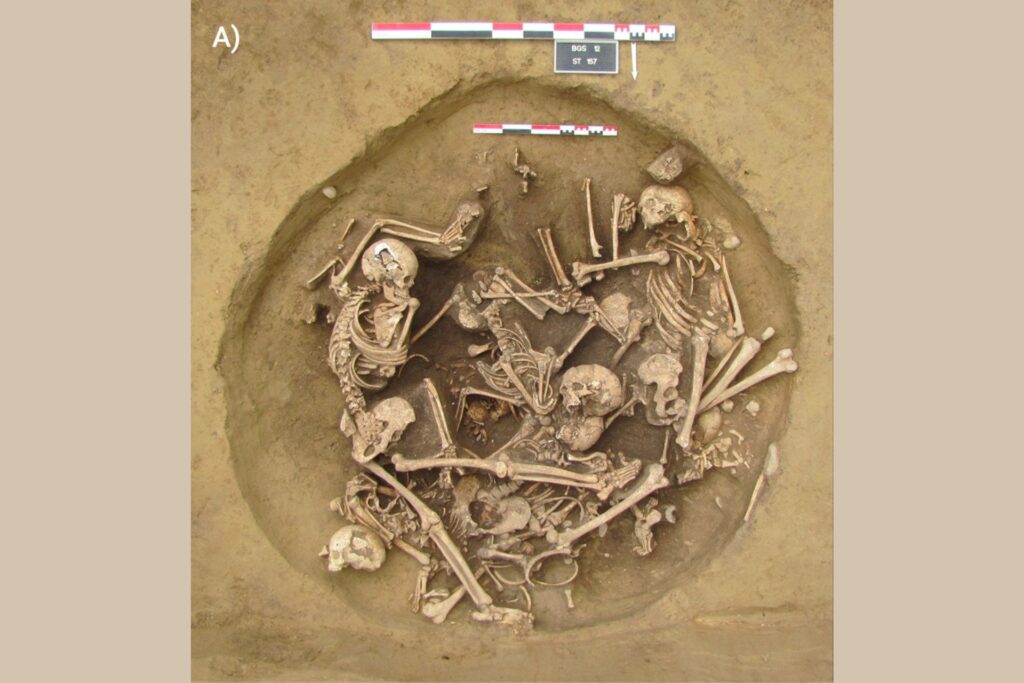
URGENT UPDATE: New evidence has emerged, confirming that Neolithic people in northeastern France brutalized their prisoners of war, according to a groundbreaking study published today in the journal Science Advances. The report details horrific findings from burial sites near Strasbourg, where researchers unearthed skeletal remains and severed limbs dating back to between 4300 and 4150 BCE.
The international team, led by Teresa Fernandez-Crespo from Valladolid University, analyzed a total of 82 human remains. Their study reveals shocking evidence of violence used against foreign invaders, suggesting these victims were not only killed but were also ceremonially mutilated, marking what may be some of the earliest known instances of martial victory celebrations in prehistoric Europe.
Researchers found gruesome wounds on the remains, including unhealed skull fractures, indicating that these individuals were likely victims of extreme violence during conflicts. In stark contrast, those without such injuries were given standard burials, implying that they were local inhabitants rather than invaders.
The skeletal analysis included isotopic investigations, which uncovered differences between the victims and non-victims. The isotopic ratios indicated that while the non-victims were local residents, the brutalized individuals originated from distant regions, further reinforcing the notion that they were invaders captured and killed by local groups.
“This treatment suggests that the victims were perceived as socially remote and possibly not regarded as fully ‘human’ by their captors,” the researchers stated, drawing a chilling connection to the concept of “overkill” in warfare.
These discoveries not only highlight the violent nature of Neolithic warfare but also reflect a broader narrative of conflict and cultural upheaval during this time period in the Upper Rhine Valley. Previous research had already hinted at military invasions, but the identification of these remains sheds new light on the brutal realities faced by those who crossed paths with these ancient communities.
As this research unfolds, experts encourage further investigation into the societal implications of such violence, potentially reshaping our understanding of human behavior in prehistoric times.
This study raises critical questions about our ancestral past and the darker aspects of human nature. The findings underscore the importance of archaeological research in revealing the complexities of early human societies.
Stay tuned for more updates on this developing story as researchers continue to explore the implications of these findings for our understanding of Neolithic life and warfare.






